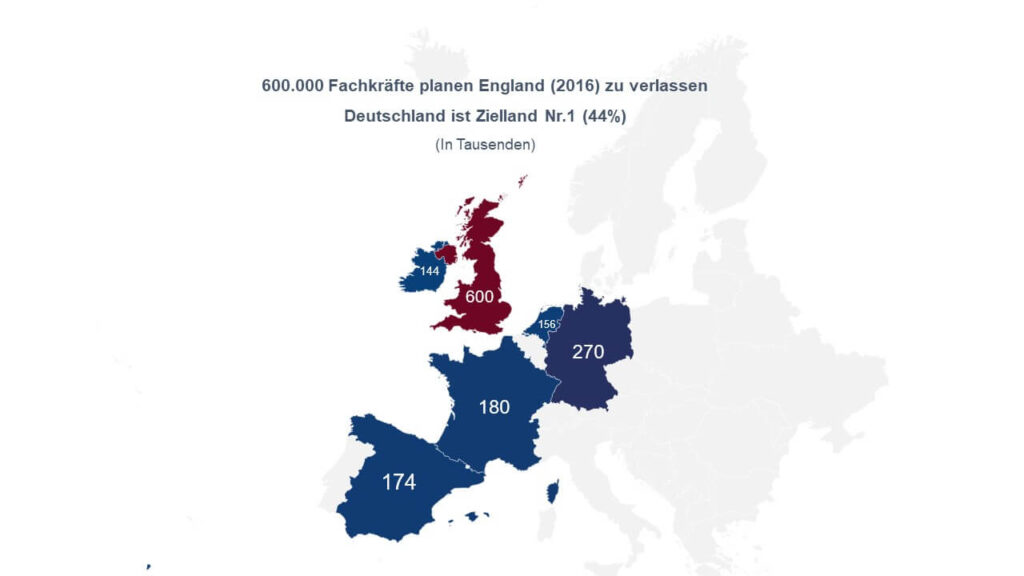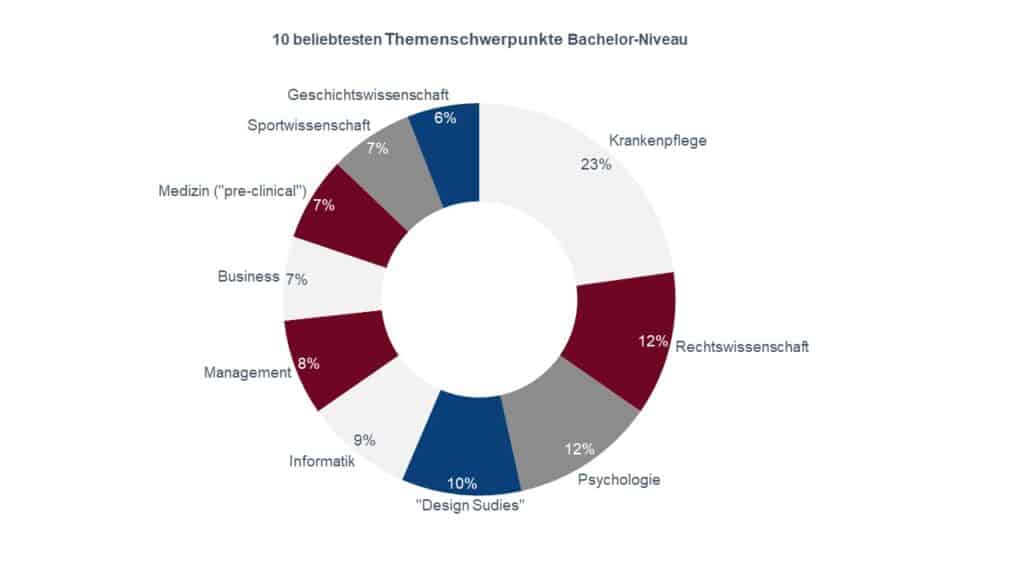EU Blue Card -
UK & Northern Ireland
EU Blue Card and the United Kingdom of Great Britain and Northern Ireland
The fact that the ancestors of the British royal family come from Germany does not change the fact that they have also needed a residence and work permit, such as an EU Blue Card, to settle and work in Germany and the European Union since 2021. Before 2021, British skilled workers enjoyed full freedom of movement within the EU. Since Brexit, however, they have been treated in the same way as citizens from other non-EU countries. These circumstances have significantly complicated the immigration of highly skilled professionals from the UK. However, Europe continues to be attractive to British workers: with an EU Blue Card, they are well-trained workers not just for the UK, but for all European countries.
What to do as a British professional?
British skilled workers who have wanted to take up employment in the EU since January 1, 2021 (so-called "new Britons") are treated as third-country nationals. Since January 1, 2021, they have required a separate residence permit in accordance with the relevant provisions of the Residence Act in order to work in Germany. This is because British skilled workers and other third-country nationals are granted access to the European labor market with the "ICT Directive" or the EU Blue Card, among other things.
The more difficult conditions of residence for Britons could have consequences for the German labor market: as a result of higher hurdles due to the new legal situation, British skilled workers could prefer to work in their home country. The consequence: German employers lose British employees. On the other hand, Brexit could become a catalyst for the German labor market. According to a survey by StepStone, around 600,000 qualified professionals want to leave the UK as a result of the Brexit. At 44 percent, Germany is by far one of the most popular countries among Britons wanting to emigrate. According to these figures, the immigration potential for the German labor market is around 264,000 skilled workers from the British labor market alone. For German employers, at least, the conclusion of a situation that has been politically and legally difficult since 2021 could therefore be: Get rid of the shortage of skilled workers and bring in the British skilled workers. The potential for this is definitely there. It just needs to be exploited.

Workers from the United Kingdom are extremely attractive to German companies because British employees are very well qualified. The country's high educational standards facilitate the transition of English professionals to the German labor market. Another big plus is the immigrants' native English language: In Germany, a large proportion of the population speaks English as a second language and in the context of international business.

A survey shows: In the UK, more than 750 thousand people graduate from university every year. However, it is not only the number of annual university graduates that speaks for itself, but also the diversification of university qualifications. The diverse, high qualifications of British graduates and employees make the UK labor market one of the most attractive markets for potential EU Blue Card applicants.
The cultural and geographical proximity of the UK also makes the British labor market more attractive to German employers, as cultural and private integration in Germany is much easier.
Easier to immigrate as a British professional
In order to take up employment within Germany, numerous hurdles must be overcome. In particular, employees from third countries generally need an entry visa to apply for a residence permit within Germany. The situation is different in the case of the United Kingdom, which is a privileged country in terms of residence law. British skilled workers can enter the Federal Republic of Germany without a visa and apply for a residence permit in Germany. The possibility of personal presence can further simplify the immigration procedure for British skilled workers. In turn, German employers can obtain the specialists they need for their company more quickly.
More information about the EU Blue Card can be found here.
